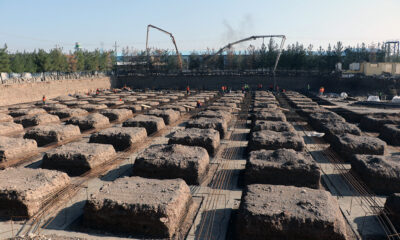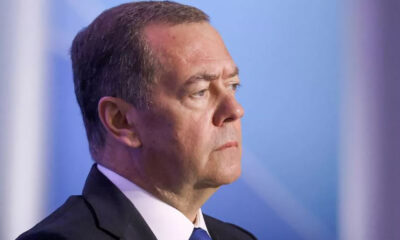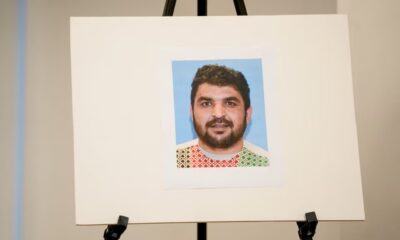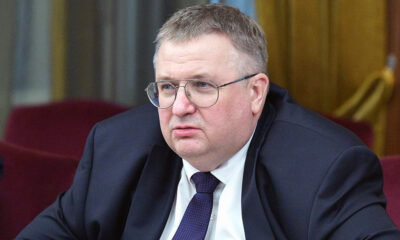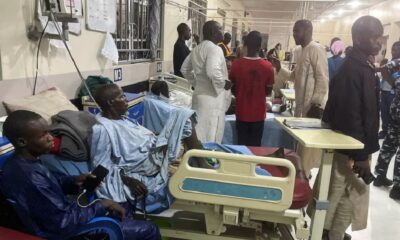World
U.S. agrees to send advanced rockets to Ukraine
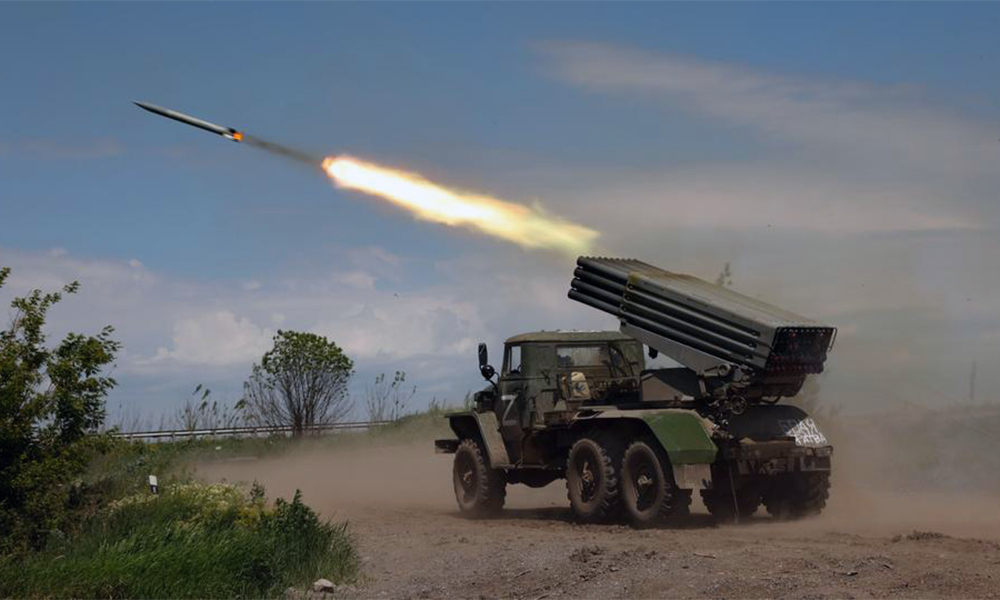
Russian troops fought to take complete control of the eastern industrial city of Sievierodonetsk on Wednesday as the United States said it will provide Ukraine with advanced rockets to help it force Moscow to negotiate an end to the war.
President Joe Biden said the United States would provide Ukraine with more advanced rocket systems and munitions so it can “more precisely strike key targets on the battlefield”.
“We have moved quickly to send Ukraine a significant amount of weaponry and ammunition so it can fight on the battlefield and be in the strongest possible position at the negotiating table,” Biden wrote in an opinion piece in the New York Times.
A senior Biden administration official said weaponry provided would include the M142 High Mobility Artillery Rocket System (HIMARS), which Ukraine’s armed forces chief said a month ago was “crucial” to counter Russian missile attacks.
Addressing concerns that such weapons could draw the United States into a direct conflict with Russia, senior administration officials said Ukraine gave assurances the missiles would not be used to strike inside Russia.
“These systems will be used by the Ukrainians to repel Russian advances on Ukrainian territory, but they will not be used on targets in Russian territory,” the U.S. official told reporters.
Shortly after the U.S. decision was announced, the Russian defence ministry said Russia’s nuclear forces were holding drills in the Ivanovo province, northeast of Moscow, the Interfax news agency reported.
Some 1,000 servicemen were exercising in intense manoeuvres using more than 100 vehicles including Yars intercontinental ballistic missile launchers, it cited the ministry as saying.
There was no mention of the U.S. decision to supply new weapons in the Interfax report.
The latest U.S. pledge of weapons for Ukraine – on top of billions of dollars worth of equipment already provided including anti-aircraft missiles and drones – came as Russia pressed its assault to seize the eastern Donbas region, having abandoned its earlier thrust toward Kyiv from the north.
Russian troops have now taken control of most of the eastern industrial city of Sievierodonetsk in Luhansk, one of two provinces in the Donbas, regional Governor Serhiy Gaidai on Tuesday.
Nearly all critical infrastructure in Sievierodonetsk had been destroyed and 60% of residential property damaged beyond repair, he said. Russian shelling had made it impossible to deliver aid or evacuate people.
A Russian victory in Sievierodonetsk and its twin city of Lysychansk across the Siverskyi Donets river would bring full control of Luhansk, one of two eastern provinces Moscow claims on behalf of separatists.
A pro-Moscow separatist leader said Russian proxies had advanced slower than expected to “maintain the city’s infrastructure” and exercise caution around its chemical factories.
“We can say already that a third of Sievierodonetsk is already under our control,” Russia’s TASS state news agency quoted Leonid Pasechnik, the leader of the pro-Moscow Luhansk People’s Republic, as saying.
Gaidai warned Sievierodonetsk residents not to leave bomb shelters due to what he said was a Russian air strike on a nitric acid tank.
The Luhansk People’s Republic’s police force said Ukraine’s forces had damaged it. Ukraine and Russian-backed separatists traded accusations over a similar incident in April.
Jan Egeland, secretary general of the Norwegian Refugee Council aid agency which had long operated out of Sievierodonetsk, said he was “horrified” by its destruction.
Up to 12,000 civilians remain caught in crossfire, without sufficient access to water, food, medicine or electricity, Egeland said.
“The near-constant bombardment is forcing civilians to seek refuge in bomb shelters and basements, with only few precious opportunities for those trying to escape,” he said.
WEAPONS PACKAGE
Ukraine says weapons sent by the United States and other countries since the beginning of the invasion have helped fend off Russian gains.
The high mobility artillery rocket systems are part of a $700 million weapons package expected to be unveiled by the United States on Wednesday.
The package includes ammunition, counter fire radars, a number of air surveillance radars, additional Javelin anti-tank missiles, as well as anti-armour weapons, officials said.
Ukrainian President Volodymyr Zelenskiy has called for more weapons while lambasting the European Union, which agreed on Monday to cut imports of Russian oil, for not sanctioning energy from Russia sooner.
The EU said it would ban imports of Russian oil by sea. Officials said that would halt two-thirds of Russia’s oil exports to Europe at first, and 90% by the end of this year.
Responding to the EU oil embargo, Russia widened its gas cuts to Europe, pushing up prices and ratcheted up its economic battle with Brussels.
Putin launched his “special operation” in February to disarm and “denazify” Ukraine. Ukraine and its Western allies call this a baseless pretext for a war to seize territory.
Ukraine accuses Russia of war crimes on a huge scale, flattening cities and killing and raping civilians. Russia denies the accusations.
World
Mosque blast in northeastern Nigeria kills five, injures dozens
World
Libyan army’s chief dies in plane crash in Turkey
Turkish Justice Minister Yilmaz Tunc said an investigation into the crash was under way.
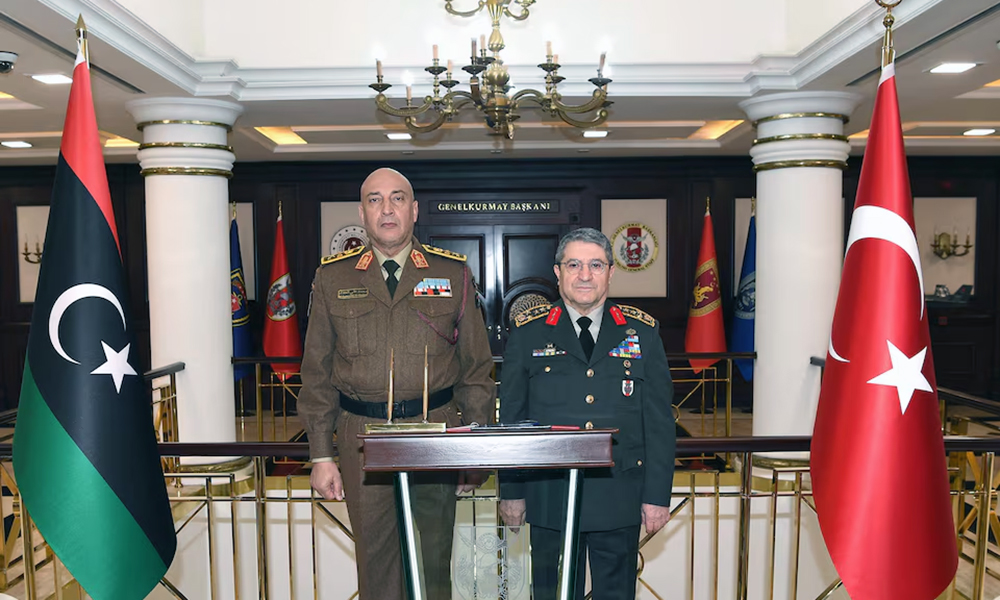
The Libyan army’s chief of staff, Mohammed Ali Ahmed Al-Haddad, died in a plane crash on Tuesday after leaving Turkey’s capital Ankara, the prime minister of Libya’s internationally recognised government said, adding that four others were on the jet as well, Reuters reported.
“This followed a tragic and painful incident while they were returning from an official trip from the Turkish city of Ankara. This grave loss is a great loss for the nation, for the military institution, and for all the people,” Libyan Prime Minister Abdulhamid Dbeibah said in a statement.
He said the commander of Libya’s ground forces, the director of its military manufacturing authority, an adviser to the chief of staff, and a photographer from the chief of staff’s office were also on the aircraft.
Turkish Interior Minister Ali Yerlikaya said on social media platform X that the plane had taken off from Ankara’s Esenboga Airport at 1710 GMT en route to Tripoli, and that radio contact was lost at 1752 GMT. He said authorities found the plane’s wreckage near the Kesikkavak village in Ankara’s Haymana district.
He added that the Dassault Falcon 50-type jet had made a request for an emergency landing while over Haymana, but that no contact was established.
The cause of the crash was not immediately clear.
Turkish Justice Minister Yilmaz Tunc said an investigation into the crash was under way.
The Tripoli-based Government of National Unity said in a statement that the prime minister directed the defence minister to send an official delegation to Ankara to follow up on proceedings.
Walid Ellafi, state minister of political affairs and communication for the GNU, told broadcaster Libya Alahrar that it was not clear when a crash report would be ready, but that the jet was a leased Maltese aircraft. He added that officials did not have “sufficient information regarding its ownership or technical history,” but said this would be investigated.
Libya’s U.N.-recognised Government of National Unity announced official mourning across the country for three days, read the report.
Turkey’s defence ministry had announced Haddad’s visit earlier, saying he had met with Turkish Defence Minister Yasar Guler and Turkish counterpart Selcuk Bayraktaroglu, along with other Turkish military commanders.
The crash occurred a day after Turkey’s parliament passed a decision to extend the mandate of Turkish soldiers’ deployment in Libya by two more years.
NATO member Turkey has militarily and politically supported Libya’s Tripoli-based, internationally recognised government. In 2020, it sent military personnel there to train and support its government and later reached a maritime demarcation accord, which has been disputed by Egypt and Greece.
In 2022, Ankara and Tripoli also signed a preliminary accord on energy exploration, which Egypt and Greece also oppose, Reuters reported.
However, Turkey has recently switched course under its “One Libya” policy, ramping up contacts with Libya’s eastern faction as well.
World
Trump administration recalls dozens of diplomats in ‘America First’ push
The State Department declined to name those affected, with a senior official calling the recalls a routine step for new administrations.
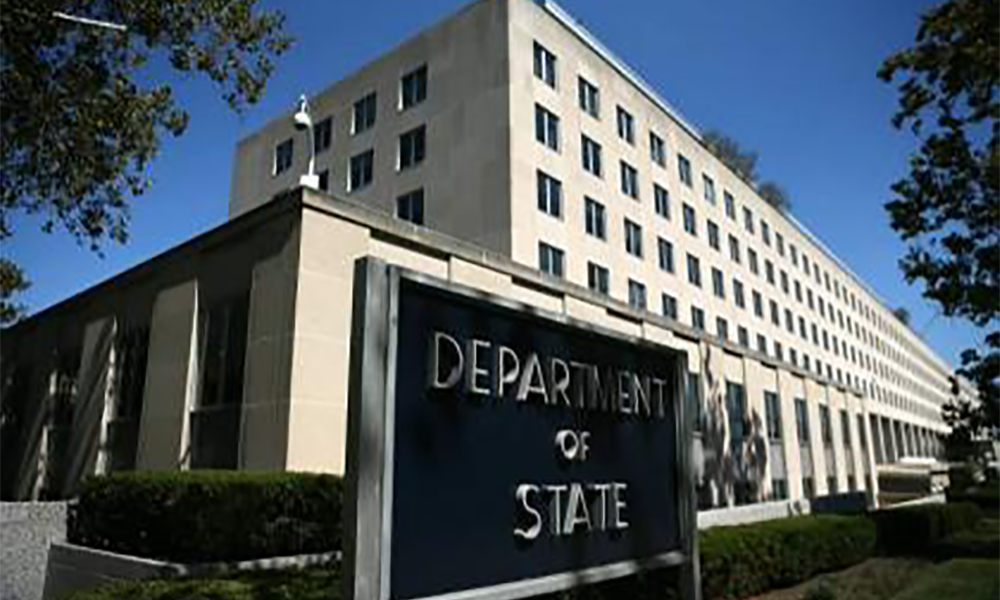
The Trump administration is recalling nearly 30 U.S. ambassadors and senior career diplomats to ensure embassies align with President Donald Trump’s “America First” agenda, a move critics say could weaken U.S. credibility abroad.
The State Department declined to name those affected, with a senior official calling the recalls a routine step for new administrations. The official said ambassadors are the president’s representatives and must advance his policy priorities.
However, officials familiar with the matter said the recalls largely affect career Foreign Service officers posted to smaller countries, where ambassadors are traditionally non-partisan. Those ordered back to Washington were encouraged to seek other roles within the State Department.
The American Foreign Service Association said some diplomats were notified by phone without explanation, calling the process “highly irregular” and warning that such actions risk harming morale and U.S. effectiveness overseas. The State Department did not respond to the criticism.
The move, first reported by Politico, comes as Trump seeks to place loyalists in senior roles during his second term, after facing resistance from the foreign policy establishment in his first.
Democrats have criticised the decision, noting that around 80 ambassadorial posts remain vacant. Senator Jeanne Shaheen said the recalls undermine U.S. leadership and benefit rivals such as China and Russia.
-

 Latest News2 days ago
Latest News2 days agoAfghanistan exports 10 containers of batteries to Saudi Arabia and UAE for first time
-

 Latest News2 days ago
Latest News2 days agoPakistani cleric condemns lifetime immunity for Army Chief as un-Islamic
-

 Latest News4 days ago
Latest News4 days agoAfghanistan signs 30-year deal for marble mining in Daikundi
-

 Latest News5 days ago
Latest News5 days agoAfghan health minister calls for medical cooperation between Kabul and New Delhi
-

 Latest News5 days ago
Latest News5 days agoKarzai urges reopening of girls’ schools and universities for Afghanistan’s bright future
-
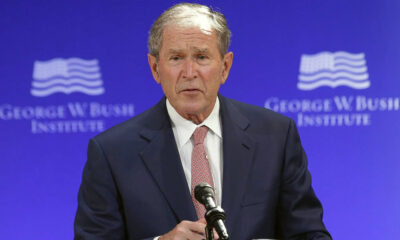
 Latest News4 days ago
Latest News4 days agoBush Institute criticizes Trump administration’s Afghan immigration freeze
-

 International Sports2 days ago
International Sports2 days agoAriana News to broadcast key AFC Champions League Two clash
-

 Regional2 days ago
Regional2 days agoPakistan agrees to $4 billion arms deal with Libyan National Army


